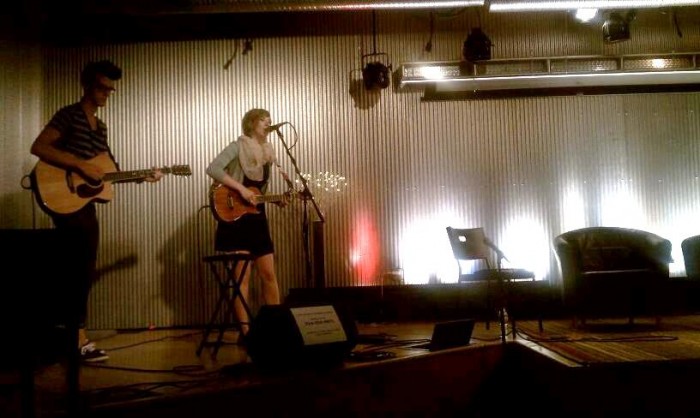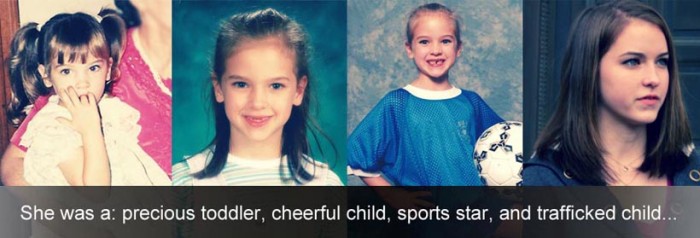On Thursday, August 30, concerned citizens and activists in D.C. learned about sex trafficking from a survivor perspective. Policy Assistant at Shared Hope International, Shamere McKenzie, moderated a panel discussion that allowed the audience to ask questions and discuss pressing issues in the fight to end sex trafficking. The event took place at Ebenezer’s Coffeehouse in Washington, D.C. and was hosted by DC Stop Modern Slavery (DC SMS), a D.C.-based grassroots organization that works to raise awareness of modern-day slavery.
DC SMS will be hosting the 2012 Stop Modern Slavery Annual Walk at the National Mall on Saturday, September 29, from 12:00 PM – 4:00 PM. Hundreds of advocates and concerned citizens along with numerous anti-trafficking organizations will make the mile-long walk in unity to express their support for eradicating child sex trafficking NOW! The event includes live entertainment, speakers and resources.
 The night began with Bethany and the Guitar rocking the house, supporting the eradication of trafficking through their indie beats. The music was uplifting and lyrics beautifully written. McKenzie then moderated the panel discussion, which consisted of remarks by survivors Barbara Amaya and Stacey Lewis.
The night began with Bethany and the Guitar rocking the house, supporting the eradication of trafficking through their indie beats. The music was uplifting and lyrics beautifully written. McKenzie then moderated the panel discussion, which consisted of remarks by survivors Barbara Amaya and Stacey Lewis.
Amaya spoke about the stigma of criminal convictions on victims of sex trafficking in the United States. Currently, only 7 states allow survivors to clear their record of convictions gained during their time in trafficking. In most states victims are burdened with convictions on their permanent records, which follow them into and throughout adulthood. Amaya recommends citizens make a difference on this issue by writing their legislators and demanding new laws and policies be implemented.
Lewis is a playwright and actor who uses her skills to incorporate anti-trafficking messages into her work. Lewis spoke about the role of media in both promoting and preventing sex trafficking, and said that certain media exposure is important for educating the public about the issue so that they can take action. She ended the evening with a moving and powerful spoken word piece on her experience in the sex trade.
The event was a powerful reminder of the importance of this movement to address the sexual exploitation of women and children in the sex trade. If you are interested in getting involved, come out and walk towards freedom with team Shared Hope International on September 29! Follow this link to register for our team.
To learn more about DC Stop Modern Slavery and the walk, visit www.smswalk.org and www.stopmodernslavery.org
For more information on the women who participated in the panel, visit www.survivorsofslavery.org







